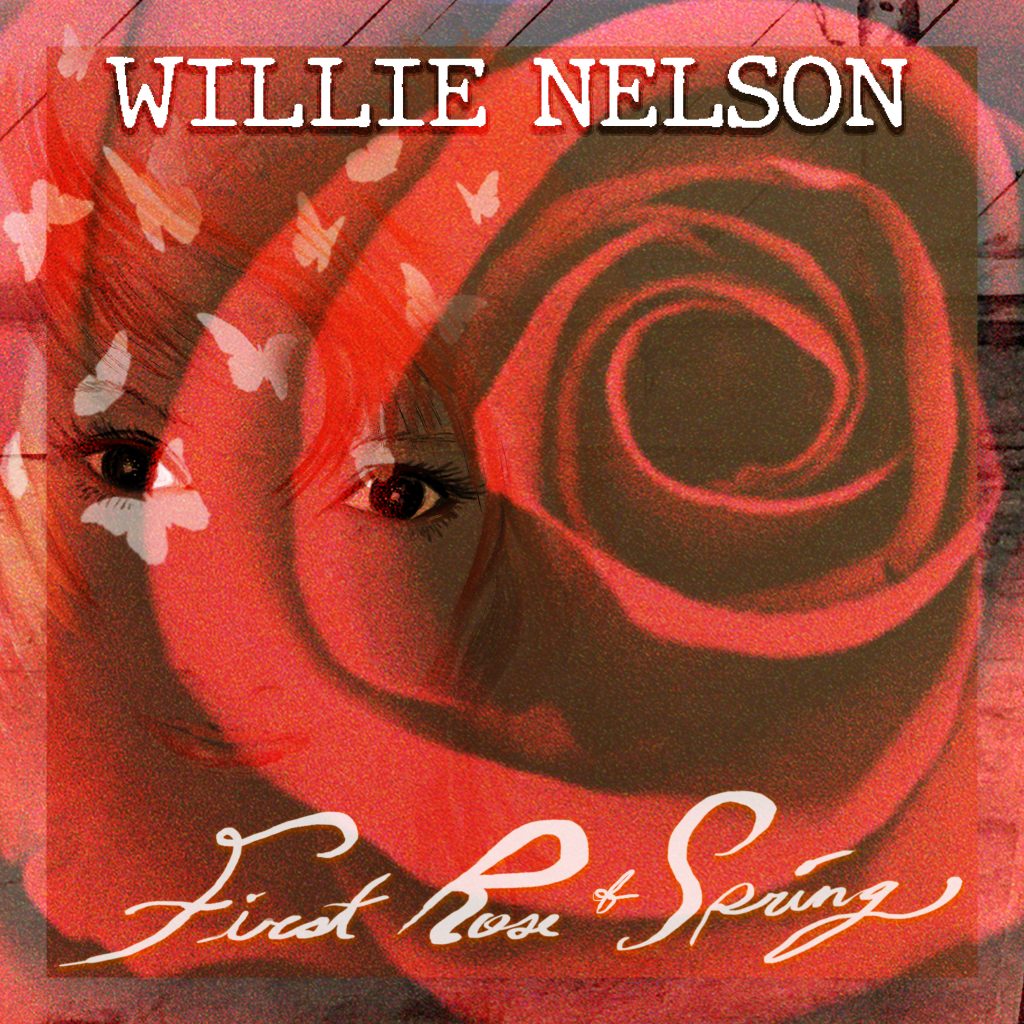Album Review: Willie Nelson’s ‘First Rose Of Spring’
New Nelson music is always welcome.

There’s really very little argument to be made against the notion that Willie Nelson is country music’s most dependable artist. The 87-year old Texan refuses to slow down his constant touring—only a pandemic can accomplish that—and the last decade has welcomed over a dozen new Nelson albums. The fact that the majority of those offerings are not only admirable efforts, but downright fantastic only makes this era of the Red Headed Stranger even more stunning.
Nelson’s new album, First Rose of Spring, is every bit as lovely as the title’s imagery suggests. Produced by longtime friend and collaborator Buddy Cannon, Nelson’s 70th studio album continues a trend witnessed in most of the other records the Country Music Hall of Famer has released in the past few years. Prevalent themes of mortality, hindsight-fueled wisdom and a desire to still welcome what life has left fill the record in ways both directly and indirectly.

For those who have attended a Nelson concert in the past 15 years, it can be a little startling to hear the same person sing on record. Occasionally hearing Nelson stop to take a breath or to hear him dig deep in order to belt out a couple of bold, higher notes is beguiling given the circumstances. In the live setting, Nelson has long since taken a liking to scurrying through each number while speaking the lyrics more than singing them.
That’s not a complaint by any means, as taking in a Nelson show, especially these days, should be as much about simply being in his presence and experiencing his legendary tunes in the flesh as anything else. What his albums continue to do, however, is provide the listener with a different Willie Nelson experience than the concert one. Not merely because you’re likely to never hear any of these new songs in concert, because he sticks to the classics, but because what he does on stage is simply different than what he does in studio.
Throughout the ‘90s and into the current millennium, Nelson experimented with different sounds, styles and even genres, to wildly varying degrees of success. The folks who winced at his forays into reggae and pop need not worry now. This album is exactly what comes immediately to mind when the term “a Willie Nelson album” is proffered.
That table is set quickly and elegantly with the jazz-inflected, album-opening title track, written by Randy Houser. Nelson’s trademark, sparse acoustic guitar picking, blanketed by Mickey Raphael’s faultless harmonica provide an exquisite bed for Nelson’s vocals. Although the delicate delivery perhaps leans more towards a whisper, his voice is striking in its fragility and grace.
View this post on InstagramA post shared by Willie Nelson (@willienelsonofficial) on
Throughout the record, it’s hard to deny the drawing power of Nelson’s vocal performance. Similar to many of his contemporaries including Bob Dylan, Neil Young or the recently deceased John Prine, Nelson’s instrument hasn’t improved over the years from a technical perspective, but it’s grown more endearing and authentic in its older age.
The Toby Keith-penned “Don’t Let the Old Man In” is a shuffling acoustic number augmented by tastefully stirring strings. With a breathy delivery, Nelson lends advice on how to stay young, regardless of one’s age by singing “try to love on your wife and stay close to your friends / toast each sundown with wine / and don’t let the old man in.” That brave vocal fragility is again evident in the Chris Stapleton-written “Our Song,” a song featuring dreamy, wafting pedal steel which musically recalls the iconic 1981 Nelson hit “Angel Flying Too Close to the Ground.”
On his cover of Johnny Paycheck’s 1977 “I’m the Only Hell (My Mama Ever Raised),” Nelson picks up the pace with a galloping performance. And on a gorgeous, classical-tinged cover of Roy Clark’s “Yesterday When I Was Young (Hier Encore),” Nelson admirably stretches for his highest vocal notes, bringing the album to a satisfying, dramatic end.
Given his age, it’s tempting to wonder if this album is the final one from Nelson. If it is, he’ll certainly end things on a high note, but if we’ve learned anything from him over the years, it’s that we can depend on him to deliver more music. We’ve also learned that Willie Nelson music is always worth welcoming.


